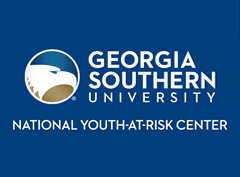Learning Academy and Power Lunches: Meeting the literacy needs of at-risk families in their own rural communities
Focused Area
Youth-At-Risk in Rural Settings
Relevance to Focused Area
To identify the children who were most at risk, partners reviewed community data (i.e child abuse and neglect statistics, poverty indicators) and school data (reading scores, numbers of children on PK waiting list, poverty indicators). These data were overlaid to find hot spots of need. Disaggregated data revealed particular communities that were faced with the most need. Many of the families are non-native speakers of English. With grade level reading by third grade as a goal, programming was developed to address the needs of the most vulnerable population in six communities in one rural county. Learning Academies were developed to work with parents and children in building literacy skills in the rural setting in North Georgia. The academies focused on eight different topics ranging from alphabet work to science and math vocabulary. Each session the facilitators, assisted by pre-service teachers, worked with parents and grandparents modeling and practicing ways for families to build literacy at home. Families then took materials such as conversation cards as well as books home each week and practiced the activities. For Power Lunches, pre-service teachers developed standards-based hands-on lessons. These lessons were delivered at summer lunch sites. The lessons had science experiments, with literacy and vocabulary activities built in to support the experiments. Recently, a third endeavor was added. During the two summer sessions at Dalton State College, a project with two of the focus schools and the Children’s literature class was created. The teacher candidates taught students in each focus schools for two weeks concentrating on genres of literature, fluency practice, and comprehension skills.
Primary Strand
Family & Community
Relevance to Primary Strand
The school system and the college partnered to develop projects to provide support to families in the rural communities outside of the classroom. Many of these rural families do not have access to support during the regular school day. Access to transportation is an issue in this rural community, so families often do not take advantage of resources that are available in the larger community. Thus, programming was brought to the families in their school and home communities. In the case of power lunches, programming went into the neighborhoods to provide literacy support to address the summer slide. The focus of Learning Academies was to provide modeling and practice to the people in the family (be they parents, grandparents, or older siblings) who were the children’s first teachers at home. Through focus group interviewing of parents, the facilitators learned that many of the parents did not know they had the skills to assist their children with literacy development at home. Others believed that they should not be assisting at home as literacy development was under the purview of the schools.
Brief Program Description
The presentation will explain the process of creating the Learning Academies and Power Lunches as well as highlight some of the materials created to support literacy. Additionally, the Children’s Literature project will be discussed with information on student selection and implementation of the project. Additionally, insights will be provided into the process as well as explanation about how the program has grown, funding that was secured and the data collected showing the growth students made.
Summary
Presenters will provide information about the development of a support program to build literacy in rural communities outside of the classroom. Information will be shared to identify the strategies used to identify need, to select participants, and to develop the programming. Qualitative and quantitative data showing impact will be shared.
Evidence
Analysis of data demonstrates that this programming is impacting literacy development in the rural community. Pre and post testing of listening vocabulary and fluency demonstrates growth for many of the children. Focus groups and interviews of parents, teachers, administrators, and teacher candidates reveals the positive impact this programming is having on parenting, teaching practice, and literacy skills.
Format
Individual Presentation
Biographical Sketch
Jacquelyn Mesco is an assistant professor in the School of Education at Dalton State College in Dalton, Georgia. She primarily teaches literacy courses in the School of Education. Beginning her career as Montessori teacher in Savannah, Georgia, she spent 13 years in a multi-age, multi-grade classroom.
Sharon Hixon is the dean of the School of Education at Dalton State College in Dalton, Georgia. She has primarily taught ESOL methods courses in the School of Education. Before beginning her career at Dalton State College, she was a fourth grade teacher at a private school in Maryland and a first and second grade teacher for Baltimore City Schools.
Julie Sharpe is President of Sharpe Solutions, a small firm providing evaluation for school systems, technical colleges, museums and non-profit organizations. She uses a mixed methods approach to measure impact and provides a creative, innovative, and customized approach to evaluation.
Start Date
10-26-2017 9:45 AM
End Date
10-26-2017 11:00 AM
Recommended Citation
Mesco, Jacquelyn L.; Hixon, Sharon; and Sharpe, Julie, "Learning Academy and Power Lunches: Meeting the literacy needs of at-risk families in their own rural communities" (2017). National Youth-At-Risk Conference, West (2015-2017). 2.
https://digitalcommons.georgiasouthern.edu/nyar_vegas/2017/2017/2
Learning Academy and Power Lunches: Meeting the literacy needs of at-risk families in their own rural communities
The presentation will explain the process of creating the Learning Academies and Power Lunches as well as highlight some of the materials created to support literacy. Additionally, the Children’s Literature project will be discussed with information on student selection and implementation of the project. Additionally, insights will be provided into the process as well as explanation about how the program has grown, funding that was secured and the data collected showing the growth students made.
